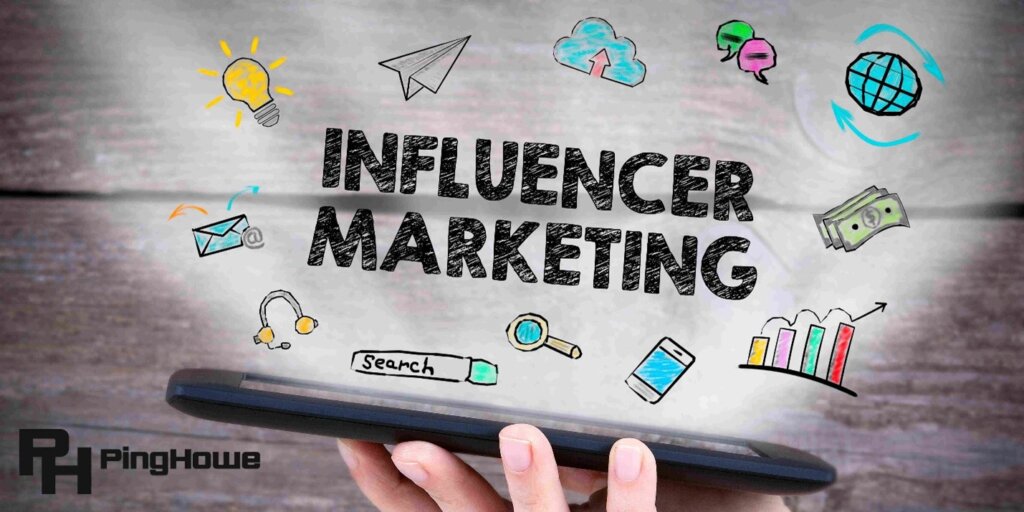In the ever-evolving landscape of digital marketing, influencer marketing has emerged as a powerful strategy for brands to connect with their target audience. Integrating influencer partnerships into content marketing strategies has proven to be an effective way for businesses to reach new audiences, build trust, and increase brand awareness. In this article, we will explore the growing significance of influencer marketing in content and how businesses can leverage these partnerships to enhance their content marketing efforts.
The Rise of Influencer Marketing

Influencer marketing has rapidly risen to prominence due to its ability to resonate with consumers in a more authentic and relatable manner. Influencers, who are individuals with substantial online followings in specific niches, have the power to influence their audience’s purchasing decisions and opinions.
While influencer marketing initially gained traction in B2C markets, it has increasingly made its way into the B2B realm as well. B2B companies are now leveraging influencers who specialize in industry-specific topics to reach key decision-makers and stakeholders.
Integrating Influencer Partnerships into Content Marketing

To maximize the impact of influencer marketing, businesses are seamlessly integrating influencer partnerships into their content marketing strategies. Here’s how:
1. Identifying the Right Influencers
The success of influencer marketing in content begins with selecting the right influencers for your brand. It’s essential to partner with influencers whose values align with your brand, and who have an engaged and relevant audience. Influencers with a genuine interest in your industry or product are more likely to create compelling and authentic content that resonates with their followers.
2. Co-Creation of Content
Once the influencers have been identified, the focus shifts to collaborative content creation. Partnering with influencers allows businesses to tap into their creativity and unique perspectives. By involving influencers in the content creation process, brands can create content that feels authentic and credible, as it aligns with the influencer’s style and expertise.
3. Leveraging Different Content Formats
Influencer partnerships open the door to diverse content formats. Businesses can collaborate with influencers on blog posts, videos, social media campaigns, live streams, podcasts, and more. Leveraging various content formats ensures that the brand’s message reaches a broader audience and appeals to different preferences.
4. Trust and Credibility
Influencers have already established trust and credibility with their followers, making them influential brand advocates. When influencers endorse a product or service, their audience perceives it as a genuine recommendation rather than a traditional advertisement. This trust factor significantly enhances the effectiveness of the content marketing campaign.
5. Amplifying Reach
Influencers have a substantial and engaged following, which allows businesses to amplify their reach beyond their existing audience. This extended reach is invaluable for expanding brand awareness and introducing the brand to new potential customers.
6. Monitoring and Measuring Results
As with any marketing strategy, tracking and analyzing the performance of influencer marketing campaigns is crucial. Businesses should monitor key metrics such as engagement rates, website traffic, lead generation, and conversion rates to measure the effectiveness of influencer partnerships in their content marketing efforts. Data-driven insights help refine future strategies and optimize return on investment (ROI).
Success Stories in Influencer-Driven Content Marketing

Several brands have reaped significant benefits from incorporating influencer partnerships into their content marketing strategies:
- Airbnb: The travel giant partnered with Instagram influencers to showcase unique accommodations around the world. These influencers shared stunning images and personal experiences, inspiring their followers to use Airbnb for their next travel adventures.
- Adobe: To promote their software and creative tools, Adobe collaborated with influential YouTubers who specialize in graphic design and photography. These influencers demonstrated the capabilities of Adobe’s products, attracting aspiring artists and creative professionals to the brand.
- HubSpot: The marketing automation company partnered with industry influencers to co-create educational content, including webinars, e-books, and podcasts. By leveraging the expertise of influencers, HubSpot positioned itself as a thought leader in the digital marketing space.
Challenges and Considerations

While influencer marketing in content offers numerous advantages, businesses must navigate certain challenges:
- Authenticity: Authenticity is key in influencer marketing. Brands should ensure that influencers genuinely believe in the product or service they are endorsing to maintain credibility.
- Regulatory Compliance: Influencer marketing is subject to advertising regulations. Brands must work closely with influencers to ensure compliance with disclosure guidelines to maintain transparency with their audience.
- Choosing the Right Platform: Different influencers excel on different platforms. Brands should select influencers who have a strong presence on platforms that align with their target audience.
Influencer marketing has become an indispensable element in contemporary content marketing strategies. By integrating influencer partnerships, businesses can reach wider audiences, build trust, and boost brand awareness. Collaborating with influencers allows brands to tap into their creativity and authenticity, resulting in engaging and effective content that resonates with their target audience. As the digital landscape continues to evolve, influencer marketing in content is set to play an increasingly pivotal role in the success of marketing campaigns.
